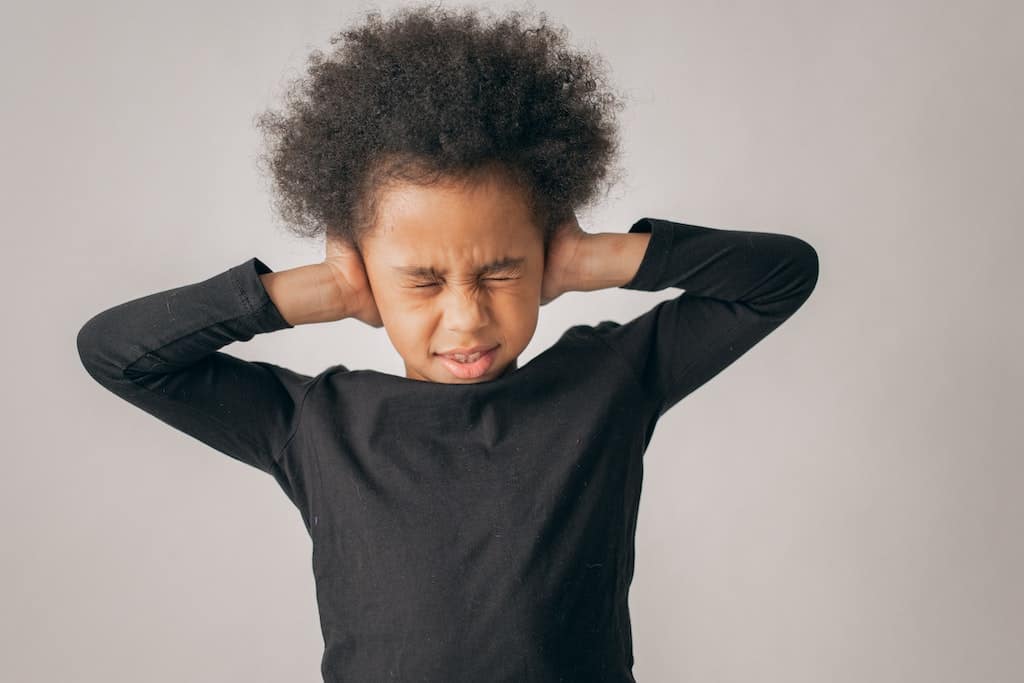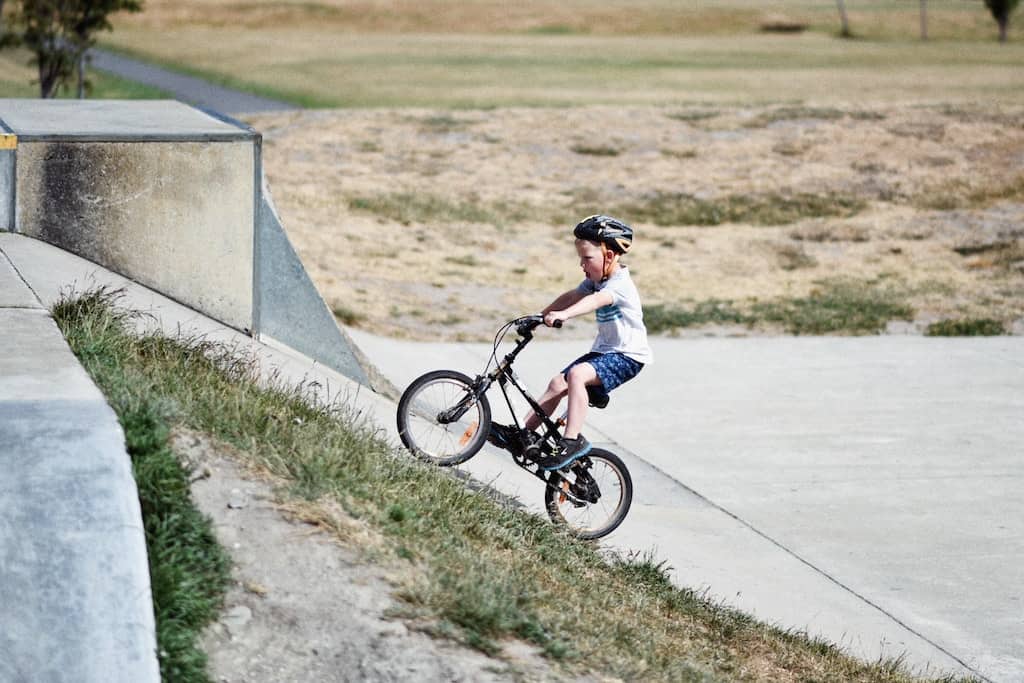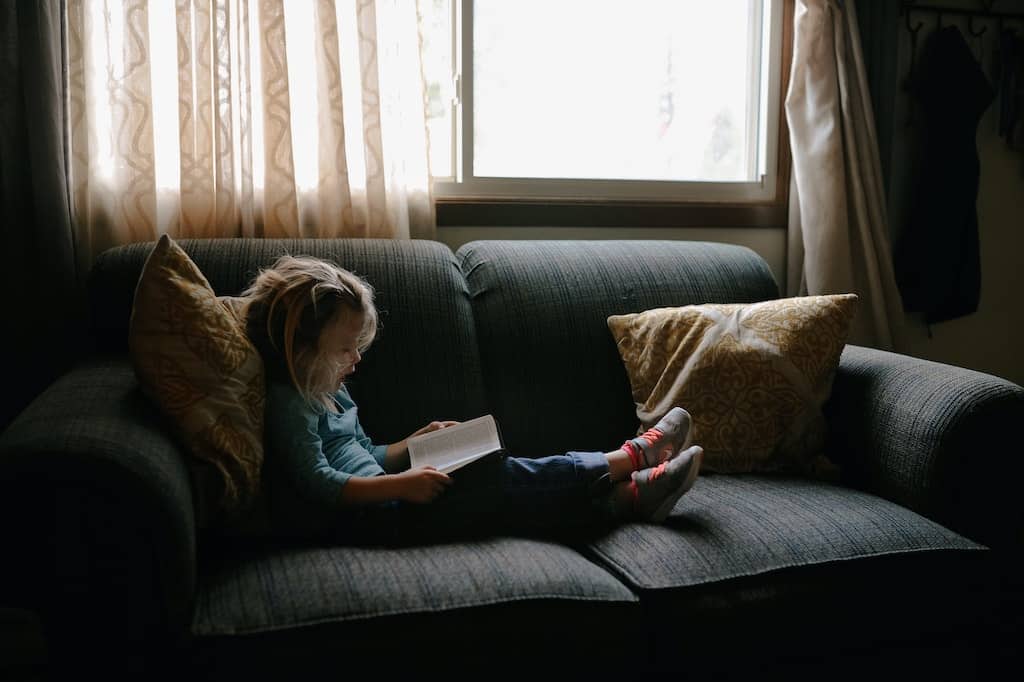“I wish I didn’t have feelings, I am tired of this”, my daughter burst out of the room saying this.
Sometimes, I feel bad for my highly sensitive child. As a highly sensitive person, I know exactly what she is going through.
Sensitive people feel everything deeply. Much deeper than how other people would do.
And when it becomes too overwhelming and unbearable for my daughter – seeing her aches my heart too – thinking about the pain she has to go through.
We, sensitive people, feel the pain of others – as real as them.
And it is both – a boon and a bane.
I have two kids and one is extremely sensitive whereas the other is a lot calmer and composed.
What I have found over the years is that the same parenting or discipline techniques don’t work with both.
To raise a highly sensitive child, we need a different approach. We need to master different discipline techniques to deal with misbehaviours too.
If you are reading this, you either know that your child is more sensitive than others or you suspect he/she is one.
If you are not sure if your child is sensitive, read the next section to look for the signs of a sensitive child.
You don’t need to check all the points, but if your child falls into at least some of the below-mentioned points, he or she is sensitive.
And the degree of sensitivity is different for different people, so it’s not all black and white.
SIGNS YOUR CHILD IS SENSITIVE
1. THEY HAVE INTENSE EMOTIONS
Sensitive people are highly emotional – sometimes too emotional that it’s hard for other people to understand why they are crying over nothing.
They feel emotions deeply.
When they see homeless people or stray animals on the streets or, if they are deeply moved and if you see a glint of tears in their eyes, it is a sign that they are highly sensitive. They want to help those in pain instantly and remove their pain.
They are caring and empathize easily with others and try to do whatever they can to help others.
On the opposite spectrum, they get excited easily. It’s hard for them to contain their happiness sometimes, and due to overstimulation, they may experience sleep problems too.

2. THEY PROCESS THOUGHTS DEEPLY
They think things through and often come up with observations wiser than their age. They also ask deep questions and this comes from their ability to think things deeply.
They can be seen as indecisive because they process each scenario deeply and therefore have to decide between different outcomes and it can get confusing.
For the same reason, they are overthinkers too, which makes them hesitate to take action because they are estimating how each scenario can go wrong.
3. SENSITIVE TO CRITICISM
Highly sensitive kids are sensitive to criticism. Since they think things through, they are very self-critical and mull over their actions too much compared to less sensitive kids.
Criticism is hard for such kids since they can connect their mistakes to their self-worth.

4. TAKES THINGS PERSONALLY
Sensitive kids take criticism more personally compared to non-sensitive kids.
The scientific reason behind this is – when we receive criticism, our limbic system (emotional brain) gets activated, bypassing the thinking brain.
Though this happens to everyone, the limbic system is activated more in highly sensitive people.
Less sensitive people may be able to access their thinking brain when receiving criticism. But for sensitive people, it is difficult.
The limbic system also stores past emotional memories which get triggered when they experience negative feedback. (Source: highlysensitiverefuge.com)
So, when these kids receive criticism, they first have to deal with the emotions that arise with it (coupled with shame), which makes them burst out with anger and tears.
And they take it personally and make it about themselves rather than seeing it as a mistake they made.
It can have a lasting impact on their self-confidence and self-esteem and for the same reason, a different approach needs to be taken when criticising sensitive kids. (more on that in the next section).
5. SENSITIVE TO LIGHT, SOUND AND TOUCH
Does your child express interest in sitting in darker areas in your house?
Do they get disturbed when someone makes a noise or speaks loudly?
Do they get easily irritated by itchy clothes or tags in the clothes?
And do they dislike someone touching their body?
This is a sign that they are highly sensitive. Sensitive kids are deeply affected by the subtleties in their surroundings. This can overstimulate them easily and give out an emotional reaction.
They get overwhelmed and are unable to focus when there are people talking around or if there are loud noises.
Their intensified reaction to their surroundings makes them startle when they hear loud noises.
They are also easily affected by the energy of people, and hence violence shown on TV shows easily affects their mood. They are also likely to avoid horror movies.

6. NEED A LOT OF DOWNTIME
Since they are easily overstimulated by their surroundings, they get overwhelmed and stressed easily.
This requires them to need a lot of quiet time, doing their own relaxing activities to recharge. They can show irritation if someone is to intrude on their quiet time.
7. READS PEOPLE WELL
They have a keen sense of observation.
They read people well and can form an accurate impression of people by gathering information from their behavioural patterns and personality traits.
8. THEY ARE INTUITIVE
They are attuned to subtle changes and therefore can predict people’s behaviour according to the information they have gathered from previous encounters.
They are good at picking up non-verbal cues from people and thus figure out what others are feeling.

9. SLOW TO ADAPT TO CHANGES
These kids struggle with transitions. They might show anxiety when their routines change and when they suddenly have to go out and interact with people.
10. MAYBE INTROVERTED OR SHY
About 15-20 per cent of the population is considered to be highly sensitive. And among the highly sensitive people, about 70 per cent are said to be introverts.
Since they spend a lot of time away from the noise, withdrawn in their own world, they can also be labelled shy, though not all sensitive kids need to be shy.
11. MAY STRUGGLE WITH SLEEP
Highly sensitive kids have overactive minds and they are always processing things deeply in their minds. This results in overstimulation and therefore it’s hard for them to wind down, relax and sleep.
12. SHOW PERFECTIONISM
Since highly sensitive kids are detail-oriented and sensitive to criticism, they care about what others think.
This causes them to be extreme about their work and they don’t want to be vulnerable or in a position where they can avoid failure or avoid making people laugh at them.
They usually hate being mocked since they take things personally and therefore try to avoid trying new things or try to make everything perfect, setting high standards for themselves.

13. PRONE TO MENTAL HEALTH PROBLEMS
Highly sensitive kids think through things in various ways, and hence are prone to anxiety and depression.
So these are some of the signs of highly sensitive children.
If your child shows most of the signs above, they could be falling under the ‘highly sensitive child’ personality trait.
If your child falls under this category, how can you help him or her? What are the parenting strategies you can adopt to view their sensitivity as a strength and not a weakness?
Let’s see.
10 ESSENTIAL TIPS FOR PARENTS OF HIGHLY SENSITIVE KIDS TO RAISE THEM
1. UNDERSTAND AND ACCEPT YOUR CHILD’S SENSITIVE NATURE
As the first step in parenting your highly sensitive child, understand why he/she is sensitive.
High sensitivity is not something children learn, but they are born with it. So do not ever try to change their sensitive nature.
According to psychologist Elaine Aron, who has published numerous books on high sensitivity, highly sensitive people are high in a personality trait called Sensory Processing Sensitivity(SPS).
The high-sensitivity nature cannot be changed. Hence, when children experience big intense emotions, stop trying to “fix them” or “make them stronger”.
What you can do is, understand their sensitivity and empathise with them.
There are pros and cons to being a highly sensitive person. So, you can help them adapt to their natural temperament instead of blaming them for being too emotional.
Refrain from calling them ‘cry babies’ or any such labels.
Related: 20 psychologically damaging things parents say to kids (and what to say instead)
Do not shame a sensitive child for expressing their emotions. The shaming can be traumatic for them.
Sensitive kids tend to have deep emotional memories, so shaming and fixing them can have an impact on their mental health.
When kids can embrace their true nature, they will be able to understand their gifts and live authentically.
High sensitivity is not a trait that needs to be “fixed”, but to be embraced.

2. UNDERSTAND WHAT TRIGGERS THEM
If you are a highly sensitive parent, your job is easy when it comes to understanding what triggers them.
You can put yourself in their shoes easily and care for their struggles.
But if you are not, you can try to learn more about highly sensitive people and understand what triggers them.
Usually what triggers high sensitive children are:
- Loud noises, bright lights, too many things to do at once, not getting downtime, overcriticism, etc.
Read the above section where I have written in detail about the signs of a highly sensitive child and you can find out more about what all trigger these kids.
Though it may not be always possible to avoid these triggers, you can respect their emotions when they occur and also respect their decision to not participate in places where they can feel overwhelmed and drained.
3. VALIDATE THEIR EMOTIONS
Always, always validate the feelings of all kids including highly sensitive kids who can seem to cry for silly things.
Don’t belittle his emotions saying he is crying/angry for nothing.
For highly sensitive kids, sensory overwhelm can manifest as anger too. Try to understand what is triggering at the moment and explain like,
“You have so many things to check off your list today, and you feel overwhelmed. Why don’t we take some deep breaths and tackle one task at a time?”

4. HELP KIDS UNDERSTAND THEIR SENSITIVE NATURE
As a kid, I never understood why I felt every emotion deeply or why I cried so much.
I would even cry for the pain other people felt. And I felt weird.
I never knew why I felt overwhelmed in different situations, or how to deal with them. If I had gotten some help then, I guess I wouldn’t be suffering from the mental health issues that developed later.
If your kids are bigger, you can help them understand why they feel emotions faster and deeper than others and how to deal with them.
You can tell them,
“Not everyone feels feelings the same way. If you feel more pain than others when your friend is scolded, it shows your ability to process things deeply.
It doesn’t make you weird but makes you unique. You can talk about your feelings anytime to me.”
Help them understand the triggers that make them emotional so that they are aware of them and can learn better coping skills.
And also always let them know that you love them no matter what.
Sensitive people are a minority in the population and being born with the ability to go to the depth of everything, sensitive people feel they are different.
It’s important for them to be accepted for their authentic nature. So accept them for who they are and refrain from comparing them to their sibling who doesn’t cry easily.
5. USE GENTLE DISCIPLINE TECHNIQUES
Being sensitive means getting overstimulated in different social situations. Or even at home, they can be very touchy sometimes.
This means they can get super angry or super sad. It’s important to teach sensitive kids to deal with their emotions in a socially appropriate way.
As I said both of my daughters react differently to discipline.
When I implement logical consequences, the younger one takes it without much problem.
But my sensitive one takes it very angrily and it’s hard to calm her down in such situations. But it doesn’t mean she can get away with whatever misbehaviour she wants.
So, implement positive discipline techniques with sensitive kids as well. But focus on correcting their actions without criticizing the child, since sensitive kids tend to take things personally.
And also, yelling can make it unbearable for them.
Reassure them about how you love them no matter what.
And also, sometimes sensitive kids can be strong-willed too. Check out this post to see if your child has the characteristics of a strong-willed person. If yes, they are not easy to deal with and here are 18 strategies you can use to discipline the strong-willed child.
Related: 11 easy ways to get kids to listen without yelling or nagging

6. FOCUS ON THEIR STRENGTHS
Sensitive kids may become tired of feeling so many emotions on a daily basis. Being a parent of a sensitive child is not easy either.
You are constantly bombarded with highly charged emotions and you might not always have the energy to deal with it too.
There have been moments when I had to stop myself from breaking down because I got tired of dealing with her emotions all the time.
Being highly sensitive myself, I tend to absorb the mood of people, though I am getting better at ‘desensitizing’ myself to protect my energy.
Even though it is hard for everyone, in those hard moments, remember, how sensitive people are among the kindest and most compassionate ones in the world.
Yes, they feel strong emotions on the positive spectrum too.
Here are some of the strengths of highly sensitive kids.
- They are compassionate and like helping people. They feel proud and accomplished when they can help take care of someone’s struggles.
- They are intuitive and can understand people really well. They can sense how their loved ones are feeling and react accordingly. They can sense what’s happening beyond without anyone telling them.
- They have incredible imaginations, are very creative, and can be good listeners who empathize with people well. Highly sensitive kids can become good artists or writers and do well in service sectors as well.
- They can take in all kinds of verbal and non-verbal cues from their surroundings and notice all the subtleties, which makes them have good leadership skills. They value what others think and they can perfectly understand their employees’ emotions well (when they are adults), which makes them lead with compassion and solve the problems of others.
- Since they tend to pick up on little details, they can find joy and gratitude in the littlest things. They can appreciate the beauty and the positive sides of people.
These are some of the strengths of highly sensitive kids. I don’t want to say too much about it. But I hope you get the idea.
Highly sensitive kids can be raised to be gifted ones if we don’t force them to bury their sensitivity under a mask.
Instead, help them understand their superpowers and help them focus on the positive sides of having intense emotions. This will help them grow up by loving their unique qualities and develop better self-esteem.
7. TEACH THEM TO FACE CHALLENGES
Sensitive kids can get easily upset over even small challenges. Since they are prone to overthinking and anxiety, their brains view even small challenges as big.
So from a young age, train them to calm down and relax during such situations.
Deep breathing, counting down from 10 to 1, punching a pillow, etc can help them release intense emotions.
It’s important to teach them that it’s not okay to unleash their emotions on others unnecessarily.
In case they feel too overwhelmed, they can retreat to a quiet corner or room and come out only when they have calmed down.
When my daughter gets overwhelmed by studies, I often ask her to think of doing it one by one. One problem at a time, and one page at a time.
We say affirmations that help in strengthening her mind and approach challenging tasks with a positive mindset.
Even though they will find it hard in the beginning (it will be hard for you too), they will eventually develop resilience and learn that they can do hard things.
But as a parent, you need to guide them constantly to pick up their emotions and focus on the challenge with an inspired mind.
Sensitive people can also be very passionate about the things they love – be it career choices or relationships. Therefore, the hardships you face will pay off later when they find a way to deal with their emotions and focus on their strengths.

8. TEACH THEM TO RELEASE EMOTIONS IN A PROPER WAY
Here are some creative ways through which they can release their overwhelm:
- Doodling
- Drawing and painting
- Meditation
- Tapping (EFT)
- Journaling and writing about what they feel
- Drawing their emotions
- Taking deep breaths
- Music and dancing (when they feel overwhelmed with happiness, they can release energy this way)
Teach kids these ways of releasing their emotions and they will learn the super valuable life skill of managing emotions in a healthy way.
You can make them write a list of things they can do when they feel overwhelmed and remind them to look at their list and choose what they want when the time comes.
When they can find proper ways to deal with their sensitivity, it will improve their confidence and they can love themselves better.
Related: 101 simple and effective calm-down techniques to teach kids to manage big emotions
9. DOWNTIME IS ONE OF THEIR BASIC NEEDS
To every sensitive person, downtime is as valuable as the air they breathe or the food they eat.
It’s a must for sensitive kids.
So when your child says, I need to sit alone, respect it completely and let them wind down in their own world as long as they please.
Their siblings must also understand this need so they can be given proper space. Or else, this can lead to tension between siblings when the other person doesn’t understand this.
A sensitive child should never be shamed for setting boundaries and for their downtime.

10. STAY CALM
This is one of the hardest things you can do as a parent of a highly sensitive child, and the most rewarding thing too.
Sensitive children have a lot to say about how they feel about different things. Sometimes it’s emotional outbursts for any injustice they face or sometimes it’s due to overwhelming situations.
Try to understand that feeling all these big emotions with an underdeveloped brain is hard.
Being on the receiving end is hard too, but we have the ability to think. Hence, implement your own calming techniques and empathise with them as much as possible without getting carried away by the emotions.
This will help children see you as a safe space to express emotions and also it’s an opportunity for you to develop a strong bond with them and also to teach emotional management.
KEY POINTS
- High sensitivity is a trait people are born with, hence highly sensitive kids should be accepted as they are
- Respect highly sensitive children’s emotions and give support empathy to them instead of shaming
- Focus on the strengths that high sensitivity gives them and teach them about it too
- Teach them how to manage their emotions properly
READ MORE:
- 10 things every daughter needs from her mom
- 10 must try tips to cure mom burnout and never get burned out again
- 11 benefits of positive parenting for parents and kids
- 9 best ways to deal with defiance in kids
- How to discipline a child who talks back
- 7 best tips to motivate a child who refuses to do homework
